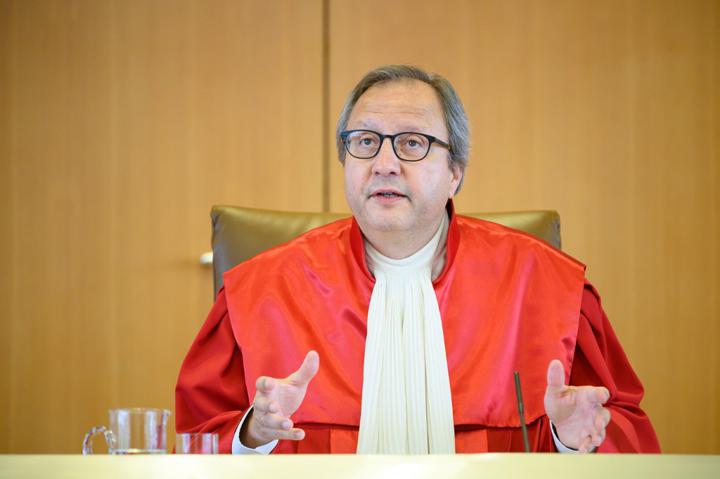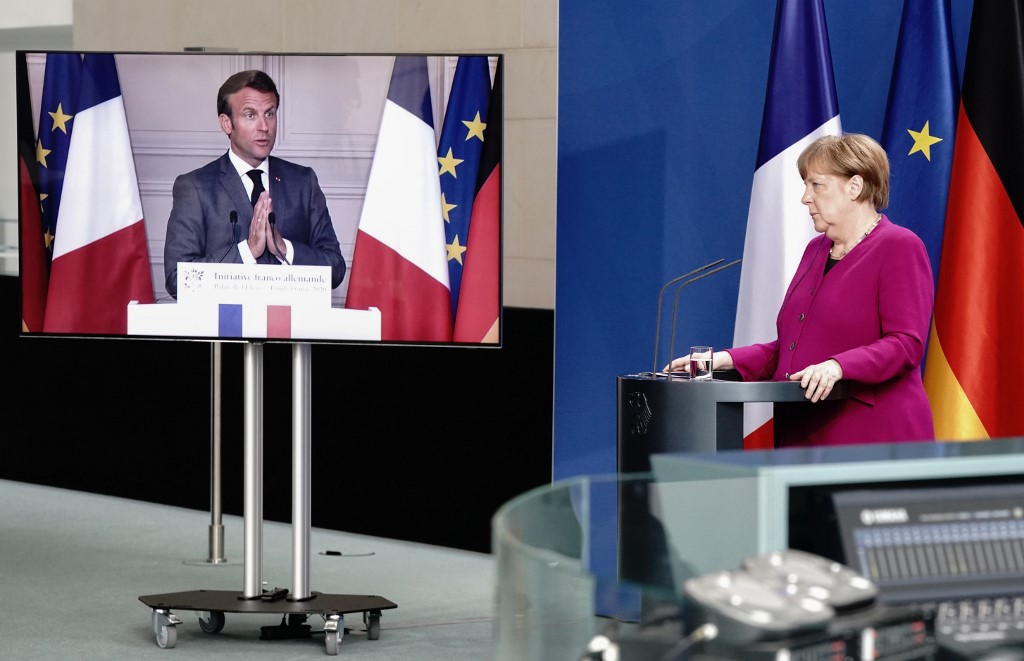The German government has backed a contentious ECB bond-buying stimulus programme, stepping in to help defuse a storm unleashed by a constitutional court ruling that threatened a key pillar of the ECB’s crisis-fighting action.
In a stunning decision in May, Germany’s Constitutional Court threatened to block the Bundesbank, the central bank, from participating in the stimulus plan unless the ECB could show within three months that its government debt purchases are not “disproportionate”.
While the court made clear that its ruling did not affect the ECB’s programmes on shoring up the economy in the coronavirus pandemic, it raised uncertainty over an important stimulus tool at a time when Europe is facing the worst economic storm since World War II.
The ECB has now received crucial backing from the German government for the Asset Purchase Programme (APP), according to a finance ministry letter seen by AFP.
Documents from the ECB justifying the programme have satisfactorily demonstrated that it did not act excessively, it said.
“The finance ministry is convinced that the ECB council… has convincingly demonstrated its deliberations about proportionality,” according to the letter from Finance Minister Olaf Scholz to parliament president Wolfgang Schaeuble.
‘Master of the universe’
As the ECB argues it is not subject to the German court’s jurisdiction, compliance of the judgement has taken a roundabout route involving German politicians.
Without explicitly bowing to the court’s demands, the ECB gave ministers a hand by explicitly discussing the question of “proportionality” that formed the basis of the challenge, in accounts of their June 4 meeting released last week.
There are “sufficient safeguards having been built into the design of these programmes to limit potential adverse side effects,” the account read, describing the two trillion-euro ($2.3 trillion) scheme in place since 2015 as an “effective tool”.
ECB governors also decided to release previously confidential documents to the German government and parliament to prove the bond buying was not excessive, sources close to the ECB told AFP.
“Together with the documents provided, the ECB Governing Council’s decision comprehensively fulfils the demands of the federal constitutional court’s May 5 judgement,” Scholz wrote to parliament chief Schaeuble.
His letter was dated June 26 – the day after the ECB account was published online.
The constitutional court’s ruling had sparked a furious reaction from the EU, which insisted that European law trumps that of member states.
European Commission chief Ursula von der Leyen has even raised the spectre of legal action against Germany.
In the bitter spat that ensued, the leading judge in the case, Peter Huber, seen below, said the ECB “should not consider itself the ‘master of the universe'”.
“All we ask of the ECB is that it accepts its responsibility in the eyes of the public and also justifies it – including towards people who are disadvantaged by its measures,” he told the Sueddeutsche Zeitung daily.

Merkel, Macron call for strong, efficient recovery fund
On Monday, German Chancellor Angela Merkel and French President Emmanuel Macron called for a “strong” and “efficient” coronavirus recovery fund for the European Union, urging a deal to be sealed next month.
The two leaders met for talks at the German government retreat in Meseberg, days before Germany takes on the rotating presidency of the bloc with an economy mired in the worst crisis since World War II.
Berlin’s chairing of the 27-member bloc will be the last with Merkel in charge, and could be the one that defines the legacy of the leader dubbed the “eternal chancellor”.
With the future of the bloc’s relationship with Britain still to be determined, a shift to a lower-carbon world in the balance and deteriorating US-China ties all jostling for attention, there is no shortage of issues to tackle. But it is the coronavirus pandemic and the economic devastation it has wrought that will concentrate minds.
At talks at the German government retreat in Meseberg, both leaders made a push for 750-billion euro recovery fund proposed by European Commission chief Ursula von der Leyen. The Franco-German pair had sketched out the backbone of the fund but it has run into opposition from so-called “frugal nations” like the Netherlands and Austria.
Hard-hit southern European countries such as Italy and Spain have called on the EU to loosen its purse strings in the response to the crisis.
“We hope we’ll find a deal (in July), even if the road is still long,” said Merkel. “What is important for me is that we come out of the debate with a strong instrument. There will of course be changes that must be discussed. But it must remain a fund that… really helps countries that are hardest hit by the crisis.”
Macron had blunt words for the hold-out nations, warning that it would “not be in their interest to see certain members – in particular, members of economic significance in the European economy – affected” by a scuppered deal. So it’s solidarity to have this transfer but also it is in their own interests.”
German ‘bulldozer’
Germany takes on custodianship of the bloc with a strong hand as it has withstood the health emergency better than most other member states.
Once an obstinate champion of budgetary rigour, Merkel’s government has ditched its no-new-debt dogma to throw resources at the crisis. Its programme to shore up the German economy totals more than one trillion euros in spending, loans and guarantees.
Together with Macron, Merkel last month proposed a massive recovery fund to jumpstart the bloc’s economy. The fund would offer grants with no repayment obligation to countries hardest hit by the pandemic, a major policy U-turn for Berlin.
With an eye on the devastating blow taken by Spain or Italy, Merkel had said that it was “imperative that Germany not only thinks of itself but is prepared for an extraordinary act of solidarity”.
On Monday, she noted that perhaps sceptical nations could be placated as long as beneficiary nations took action at home to improve their economy.
“What is very important for many that are still sceptical is the wish that we all come out of the crisis strong,” she said. “That means that the work with a financial plan for Europe and a recovery fund alone won’t be enough, but that everyone looks at home how they make themselves resistant for the future.”
‘Swan song’
Observers have said that they believe Berlin will ram through an accord. An EU diplomat agreed, saying: “On the recovery fund, I expect Germany to dictate the whole process. Merkel is holding all the cards and (EU Council chief) Charles Michel will follow that.
“She also wants to get Brexit out of the way and she will always go for the deal as she wants to keep the West together. The third leg will be restoring ties with US after the election there.”
Merkel, who has ruled out running for a fifth term next year, will not have much time.
Brexit talks will have to be done by the year’s end, and in November the focus will be on whether US President Donald Trump wins reelection.
What is clear is that Merkel’s fingerprints will be all over the EU’s roadmap. “This will be a very Merkel presidency, her swan song,” said the EU diplomat, adding that she would be using it “to craft her legacy”.
AFP
























